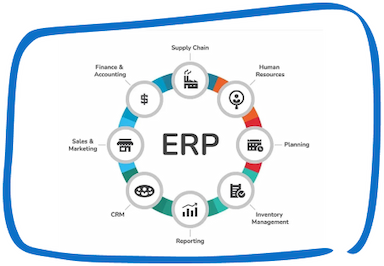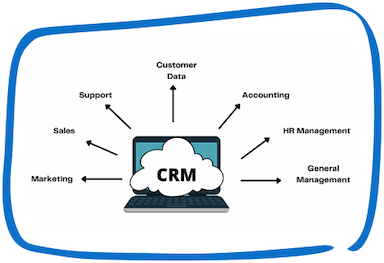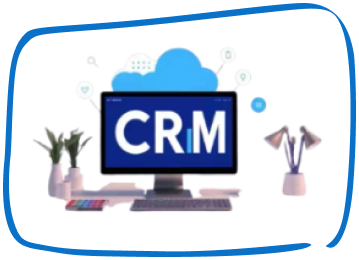Are you connected to the cloud? Cloud accounting is an exciting new development that every business — small and large — can take advantage of to streamline operations and provide connectivity between employees and clients. This is especially true in the UAE, where most businesses maintain a stable of overseas clients and employees. By moving some or all of your processes to this global resource, your business can efficiently step into a fast-paced future.
What Is the Cloud?
Think of the cloud as a massive, safe computer that’s maintained by a third party at a remote location. This computer has all the space you could ever need to host files, applications, and meeting spaces for colleagues — which means you don’t have to invest in more servers and other hardware (and space to store them) at your home base. By signing up for cloud service, you gain access to all that extra storage space and communications bandwidth. As a result, you can dramatically expand your online presence and your ability to network.
Safe and Secure Records
The first use you might have for the cloud is as supplemental storage space for your company’s irreplaceable data. Not only does rented server space potentially expand your overall storage capacity by any amount you could need, up to the terabyte range, it also helps protect what you upload to it.
Cloud storage keeps your data safe and secure in several ways. Which of these matters most to you depends on the business you’re in and the systemic risks you run:
- Physical safety: When you upload to the cloud, your records go to a server in a remote location. This can be literally anywhere in the world, putting sensitive data well out of reach of burglars and disgruntled employees. Almost all data centers are blessed with extensive physical security measures, including double-locking doors, steel cages around the machines themselves, and world-class fire-suppression systems.
- Data security: Cloud servers also benefit from state-of-the-art data security. If you handle sensitive information and worry about hackers (as you should!), cloud storage offers you the very best in civilian data security. It also saves you the expense of installing and maintaining all that security on your own machines.
- Reconstruction of lost files: Imagine your office computer breaks. If the drive is damaged or corrupted, you could lose everything. Cloud servers, on the other hand, typically run your data across multiple drives. This lets them reconstruct almost any lost data, just from looking at what’s left on the other drives.
Better Communication
Safety considerations aside, moving to the cloud has the potential to improve your day-to-day operations. Cloud-based applications, such as QuickBooks Online, can store your financial data in one convenient place, giving you have access to it from any device you carry. Other advantages include:
- Overseas communication: Many companies in the Emirates have employees in Europe and America. Many more have clients in the Pacific Rim countries. If you’re all on the cloud, scheduling a hangout is as easy as putting in a request on your shared app, then waiting for the meeting you’ve called for.
- Real-time file sharing: Apart from face-to-face conferences, the cloud lets you share data and company files across continents in a second. If your German engineers are having a problem fitting the engine under the hood of the car you’re working on, your American designers can open the cloud-based blueprints and alter them swiftly, and then you can check in from your HQ in Dubai to approve the final design.
As the world grows more connected, more businesses are moving to the cloud. Stepping into this new world now – after the early bugs have been ironed out, but before your competition plants a flag there – can open up a new world of fast, safe communications for your business.
Reference:
https://quickbooks.intuit.com/
Speak with Our Team!
4.9 Stars
1k+ reviews on






